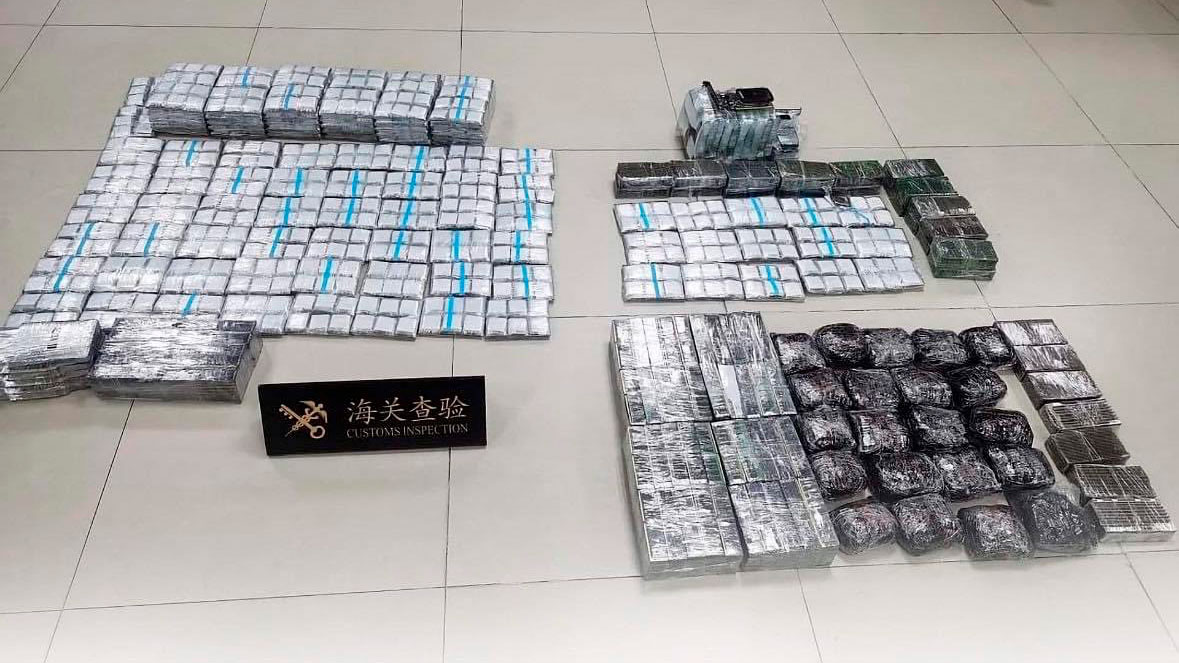The Daring Plot to Smuggle Thousands of CPUs, RAM, NAND, GPUs During Typhoon Saola

There's always an opportunity for chaos if you look hard enough. One Chinese trafficker had the brilliant idea to smuggle PC hardware across the Hong Kong–Zhuhai–Macau bridge border amidst the turmoil of category 4 Typhoon Saola that's affecting the region. He was caught possessing 1,500 processors, 1,470 memory modules, 30 graphics cards, and over 40,000 NAND flash; undoubtedly, some confiscated hardware is among the best CPUs, graphics cards, and RAM.
In the early morning of September 1, the border authorities pulled over a black Audi SUV suspected of smuggling. The perpetrator had concealed the contraband hardware inside a hidden section near the vehicle's motor area and undercarriage. The operation represents one of the biggest smuggling busts of all time, second to only an arrest from 2021 that hauled in $4 million worth of goods.
There are probably bigger heists that have gotten through customs since we only hear about the successful busts. Smuggling PC hardware from Macau into Mainland China has become a profitable business. For every one smuggler that is busted, probably four slips past the border inspection triumphantly.
On this occasion, the customs officers seized 1,500 processors, 1,470 memory modules, 30 graphics cards, and over 40,000 NAND flash chips. The goods were neatly packaged, so we couldn't get a closer look at the hardware. The customs authorities didn't share the market value for the loot. But if we had to guess, the figure probably spans half a million to a million dollars since we doubt the smuggler is trying to sneak Pentium or Celeron chips into China.
According to the Chinse regulations (via HKEPC), the customs authorities will offload the smuggled hardware in a public auction. It's the usual fashion of how customs deal with confiscated goods. Instead of destroying them to increase electronic waste, they're auctioned off to the public. The proceeds from the auctions go to the state treasury.
Graphics cards were a popular commodity during the shortage. However, nowadays, smugglers prefer smaller components, like processors or M.2 SSDs, that don't take up as much space as a graphics card. They are easier to hide, too, since you can tape them to your body or legs, which are the usual methods to smuggle stuff into China.
Get Tom's Hardware's best news and in-depth reviews, straight to your inbox.

Zhiye Liu is a news editor, memory reviewer, and SSD tester at Tom’s Hardware. Although he loves everything that’s hardware, he has a soft spot for CPUs, GPUs, and RAM.
-
etudiant Does it seem logical to impose restrictions on China while leaving Hong Kong open?Reply
Iirc, China took over Hong Kong quite some time ago and Hong Kong now is subject to Chinese law. -
d0x360 Reply
No it doesn't make any sense. The restrictions need to be imposed on hong kong too even though the majority living there have no love for the CCP. No point in trying to limit Chinas access to these things then literally send them to China controlled territory to sell.etudiant said:Does it seem logical to impose restrictions on China while leaving Hong Kong open?
Iirc, China took over Hong Kong quite some time ago and Hong Kong now is subject to Chinese law. -
hotaru251 pretty much.Reply
(not being political mods)
HK is no longer "hong kong" of past since CCP effectively raided it & forced Chinas laws/government on the place. (r.i.p their freedom)
HK is now China proxy. -
wr3zzz Reply
First, Hong Kong and Macao are not subject to China mainland laws except in areas involving national sovereignty. Case in point is the protests erupted in Hong Kong a few years ago over extradition agreements with mainland China which was passed and then retracted. Extradition laws wouldn't be needed if Hong Kong is under mainland China laws. Second, export restrictions have nothing to do with local laws of the destination. Most US export restrictions to China have been applied to Hong Kong and Macao as well. In case where export is banned only to mainland China then if companies in Hong Kong and Macao shipped restricted products to mainland China, those companies will be banned from doing business with US companies and any US company doing businesses with those banned companies will be subject to US legal penalties within US. US has no direct legal authorities outside its own territories but US can leverage its hegemony and extend US domestic laws into global de facto rules. De facto is not the same as de jure.etudiant said:Does it seem logical to impose restrictions on China while leaving Hong Kong open?
Iirc, China took over Hong Kong quite some time ago and Hong Kong now is subject to Chinese law.
PS: Think about it. If Hong Kong and Macao are under China mainland laws then why are people smuggling from Hong Kong and Macao into mainland China?